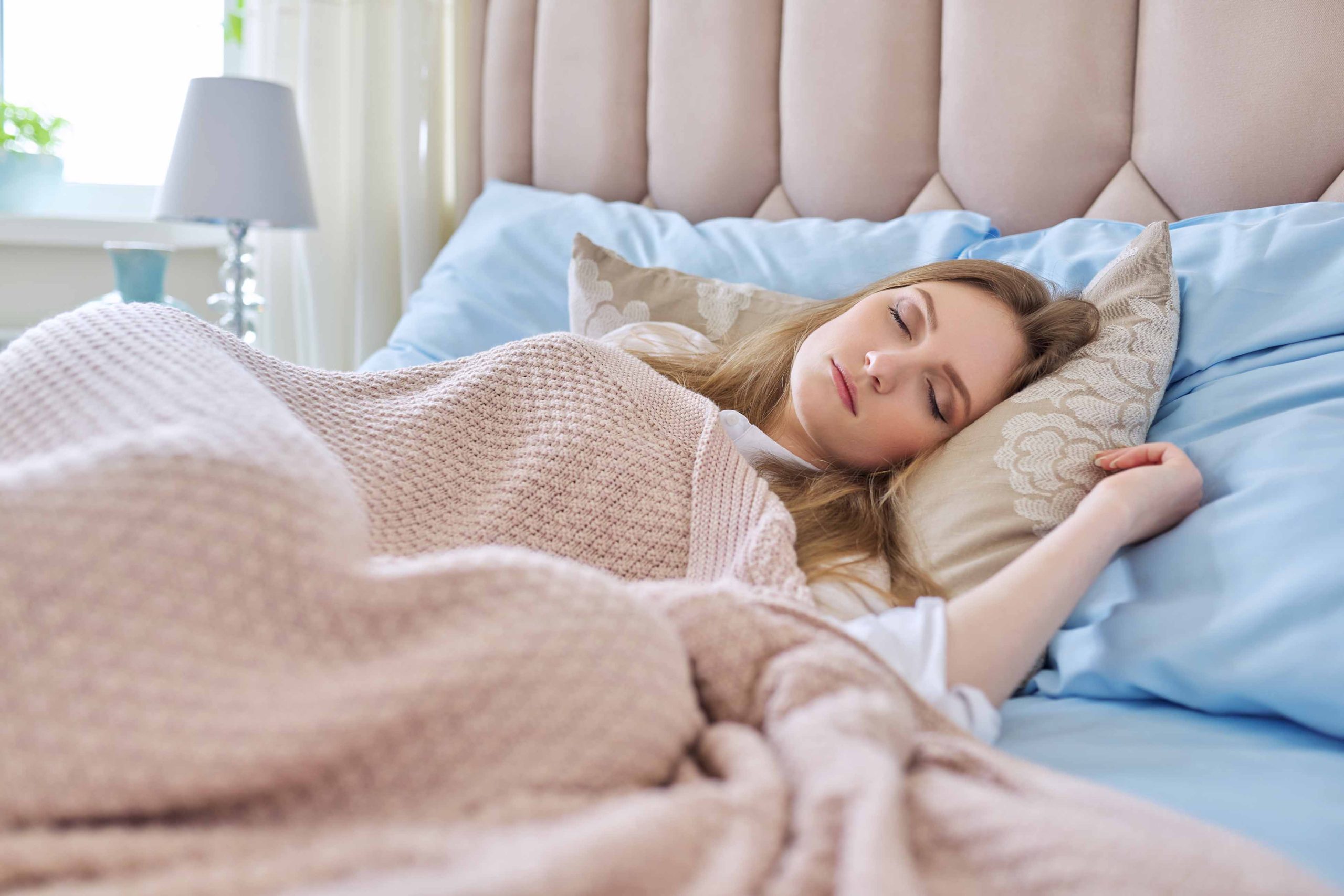Sleep is an essential aspect of our overall well-being, yet many individuals struggle to achieve restful and deep sleep. Sleep hygiene, a set of habits and practices aimed at promoting quality sleep, plays a vital role in ensuring restorative rest and maintaining good health.
What happens when we sleep and why is it important?
Sleep is a complex physiological process vital for memory consolidation, emotional regulation, and physical restoration. During sleep, the brain and body undergo essential repairs, allowing us to wake up feeling refreshed and reenergised, and lower our probability of developing health problems such as cardiovascular problems, or a weakened immune system. If we have a disrupted sleep pattern, not only does it increase the likelihood of developing health problems, but it can also affect our mood and overall well-being and quality of life.
There are several physiological processes involved when we sleep. We all have an internal biological clock, known as the circadian rhythm, which helps us to regulate our sleep-wake cycle. It is influenced by external factors such as light and darkness. Disruptions to the circadian rhythm, such as irregular sleep schedules or exposure to artificial light at night, can lead to sleep disturbances and health problems. This is also why we feel jet-lagged when travelling to other time zones, and why we might struggle with shift work. In order to help us sleep well and stay awake, we are also influenced by different hormones. When it is time to sleep, our body will release more of the hormone melatonin, which makes us sleepier. When it is time to wake up, more cortisol will be released, making us more prepared to start our day.

What then is interrupting my sleep?
There are many different factors that may influence our poor sleep. Some general examples of what tends to make it more difficult for people to have a good sleep quality, is an irregular sleep schedule or having a high physiological activation. Changing our sleep schedules everyday makes it more challenging to have good quality sleep, as you then work against your internal clock and hormone release. Your body might not be prepared to fall asleep when you go to bed. If you have been stressed most of the day and had a high physiological activation during the whole day or just before going to sleep, it would also be more difficult. You are then preparing yourself for a possible dangerous situation, and your body would not allow you to enter deep sleep as you must be prepared to fight or flight.
How can we develop a good sleep hygiene?
Sleep hygiene encompasses a range of practices that facilitates healthy sleep patterns and promote better sleep quality. There are several things we can do in order to increase our sleep quality, here are some general examples.
What can I do during the day or evening?
Regular physical activity promotes better sleep. Aim for at least 30 minutes of moderate exercise most days of the week. However, avoid vigorous exercise close to bedtime, as it may make it harder to fall asleep. Be mindful of your diet, especially in the evening. Avoid heavy meals close to bedtime, as they may cause discomfort and disrupt sleep. Consider a light snack if you feel hungry before bed, but avoid large meals. Try to limit naps during the day. While short daytime naps can be refreshing, long or late-afternoon naps may interfere with your ability to fall asleep at night. If you need a nap, keep it short, preferably under 30 minutes, and avoid napping too close to bedtime.

What can I do before I go to bed?
- Implement a consistent sleep schedule. Maintaining a regular sleep schedule, helps regulate the circadian rhythm. Try to go to bed and wake up at the same time each day to establish a consistent sleep-wake cycle. This may be challenging as we tend to have plans later in the evening during the weekends, but it is helpful to not change more than one hour in each direction. If one day you go to bed a lot later than usual, try not to sleep in too long the morning after. “Catching up on sleep” may make it more difficult for us to establish a stable pattern, as we then more easily change our rhythm.
- Associate bed with sleep and relaxation, nothing else. Your bed is for two things, sleep and sex. Make sure to not work, scroll on your phone, or watch TV in bed. We then associate the bed with being more activated, something that can make it more difficult to fall asleep.
- Try to limit your caffeine and alcohol intake in the evening, and especially before going to bed. Even though alcohol can make you feel more tired at first, it can disrupt sleep patterns and lead to fragmented sleep.
- Develop a relaxing routine before bedtime to signal to your body that it's time to wind down. Between 30 minutes and one hour before your bedtime, make sure to stay away from screens and do more relaxing activities, such as reading or breathing exercises. Try to think about more neutral things, or at least to not think about topics that are stressful.
What can I do when I lie awake in bed?
When you are lying in bed and cannot sleep, try to focus on relaxing and not so much about falling asleep. If we constantly look at the time and calculate how many hours there are left until we have to get up, we become more anxious and activated, something that makes it even more difficult to fall asleep. Therefore, you should avoid looking at the time, as you do not feel more relaxed by knowing how little sleep you will get in the end and how much this will mess up your day. Paradoxically, telling yourself that you should not fall asleep facilitates its initiation. It is therefore better to tell yourself “You are just going to lie here and relax, this is good for you. Do not fall asleep, just lie here and relax”.

In order to help maintaining the association between our bed and falling asleep, it is important to not stay hours in bed tossing and turning. If you have stayed in bed more or less 15 minutes without falling asleep, leave the bed for a couple of minutes before you lay back down. During this time, it is important to not do an activity that activates you, but for example get a glass of water, go to a different room and then back, etc. Do not look at screens or check what time it is. Getting up every 15 minutes is quite frustrating, however, it will make you associate your bed with sleeping, something that will facilitate you falling asleep.
Changing a whole sleep pattern requires time and a lot of patience. There may be many other reasons for why a person might struggle with initiating or maintaining sleep than what has been presented here. If this is something you struggle with and has started to affect other areas of your life, it may be helpful to seek therapy to receive an individual analysis and treatment plan for your specific case.
About the author
Amalie Hylland is a health psychologist at Sinews. She specializes in behavior analysis and modification, working with adolescents and adults. She has experience working with a variety of issues, including anxiety management, phobias and ruminative thoughts, assertive and social skills development, self-esteem, procrastination, self-harm and obsessive compulsive behavior. Her orientation is behavioral therapy, integrating evidence-based techniques and tools to help change the thoughts, emotions and behaviors that cause us problems.
Sinews MTI
Psychology, Psychiatry and Speech Therapy

